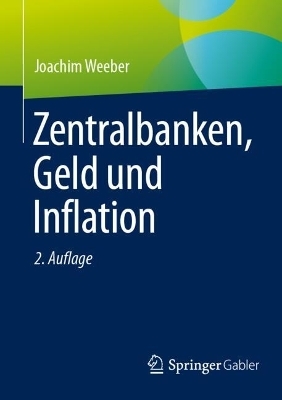
Remaking European Political Economies
University of Toronto Press (Verlag)
978-1-4875-4903-9 (ISBN)
From 2009 to 2015, the euro area of the European Union (EU) experienced an existential socio-economic crisis. To secure its institutional integrity, the EU designed several new institutions to support member states in need but also to facilitate socio-economic adjustments. The European Stability Mechanism (ESM) lies at the centre of this strategy: it provides financial assistance to member states in severe crisis on an intergovernmental basis while demanding compliance with adjustment programs from program countries.
Based on a comparative political economic analysis, Remaking European Political Economies shows that the EU’s financial assistance programs focused strongly on reforms that led to a partial convergence of program countries based on market-based economic governance and reduced governmental influence in the economy. The book draws on extensive, empirically based case studies of two prominent euro area countries in crisis: Greece and Ireland. Dennis Zagermann illustrates that socio-economic models in the euro area can experience institutional change if exposed to severe crises in combination with financial assistance programs that include policy conditionality. In doing so, his book sheds light on the central question of whether there is a possible convergence of European models of capitalism – a question that has been at the centre of comparative political economic debates for over thirty years.
Dennis Zagermann is a political scientist whose research concerns diverse issues of the European political economy.
1. Introduction
1.1 Euro area crisis and EMU governance
1.2 Varieties of capitalism: Trajectories of European socio-economic models
1.3 European Stability Mechanism
1.4 Outlook and structure of the book
2. EMU and the dynamics of institutional change
2.1 Varieties of capitalism
2.1.1 Coordinated market economies
2.1.2 Liberal market economies
2.1.3 Mixed-market economies
2.2 Adjustment pressures in times of crisis
2.2.1 Institutional constraints on economic adjustment in EMU
2.2.2 Economic adjustment pressures of EMU’s varieties of capitalism
2.3 The ESM’s potential role in institutional change
2.3.1 Rational choice institutionalism
2.3.2 Historical institutionalism
2.3.3 Discursive institutionalism
2.4 Hypotheses
3. Research design
3.1 Operationalisation
3.2 Methodology, data, and case selection
3.2.1 Methodology
3.2.2 Data
3.2.2.1 Socio-economic data
3.2.2.2 Qualitative document analysis
3.2.2.3 Semi-structured interviews
3.2.3 Case selection and time span
4. The European Stability Mechanism
4.1 European integration, the monetary union, and financial assistance
4.2 Institutional development of the ESM
4.2.1 Greek Loan Facility
4.2.2 European Financial Stability Facility
4.2.3 European Financial Stability Mechanism
4.2.4 European Stability Mechanism
4.3 Decision-making inside the ESM
4.3.1 The governance structure of the ESM
4.3.2 The central role of the Eurogroup
4.3.3 The ESM and parliamentary participation
4.4 Financial assistance programs
4.4.1 Overview of the financial assistance procedure
4.4.2 Overview of existing programs
4.4.3 The ESM’s role in the financial assistance architecture
4.5 Interim conclusion
5. The Greek case: Policy conditionally and externally induced socio-economic change
5.1 Central developments of the Greek crisis
5.2 Institutional change 2010–2018
5.2.1 Institutional changes in Greek labour markets
5.2.1.1 Decentralisation of collective bargaining
5.2.1.2 Employment protection and employment developments
5.2.1.3 Unemployment support and active labour market polices
5.2.2 Institutional changes in Greek fiscal policy
5.2.2.1 Fiscal consolidation by reducing government expenditure
5.2.2.2 Increasing government revenue
5.2.2.3 Fiscal rules, budgetary reforms, and the reduction of government discretion
5.2.2.4 Privatisation
5.2.2.5 Effects on the government’s role in the economy
5.3 Labour market reforms
5.3.1 Labour market paradigms and ideational processes
5.3.2 Actor preferences and incentive structures
5.3.3 The crisis as a critical juncture in Greek labour market policy
5.4 Fiscal policy
5.4.1 Fiscal policy paradigms and ideational processes
5.4.2 Actor preferences and incentive structures
5.4.3 The crisis as a critical juncture in Greek fiscal policy
5.5 Interim conclusion
6. The Irish case: Policy conditionality and internal ideational change
6.1 How the Irish crisis developed
6.2 Institutional change 2009–2018
6.2.1 Institutional changes in Irish labour markets
6.2.1.1 Decentralization of collective bargaining
6.2.1.2 Employment protection and employment developments
6.2.1.3 Unemployment support and activation policies
6.2.2 Institutional changes in Irish fiscal policy
6.2.2.1 Fiscal consolidation by reducing government expenditure
6.2.2.2 Government revenue developments
6.2.2.3 Fiscal rules, budgetary oversight, and the reduction of government discretion
6.2.2.4 Privatisation
6.2.2.5 Effects on the government’s role in the economy
6.3 Labour market reforms
6.3.1 Labour market paradigms and ideational processes
6.3.2 Actor preferences and incentive structures
6.3.3 The crisis as a critical juncture in Irish labour markets
6.4 Fiscal policy
6.4.1 Fiscal policy paradigms and ideational processes
6.4.2 Actor preferences and incentive structures
6.4.3 The crisis as a critical juncture in Irish fiscal policy
6.5 Interim conclusion
7. Comparing Greece and Ireland
7.1 Comparison of adjustment processes
7.2 Role of the ESM
7.3 Interim conclusion
8. Outlook: ESM reform and COVID-19
8.1 ESM reform
8.2 The ESM during the COVID-19 crisis
8.3 Interim conclusion
9. Conclusion
10. Literature
11. Attachment I: List of interviews
12. Attachment II: List of documents, Greek case
13. Attachment III: List of documents, Irish case
14. Attachment: List of abbreviations
15. Attachment: List of tables
16. Attachment: List of figures
| Erscheinungsdatum | 28.12.2023 |
|---|---|
| Reihe/Serie | European Union Studies |
| Zusatzinfo | 9 b&w figures, 28 b&w tables |
| Verlagsort | Toronto |
| Sprache | englisch |
| Maße | 156 x 235 mm |
| Gewicht | 520 g |
| Themenwelt | Sozialwissenschaften ► Politik / Verwaltung ► Staat / Verwaltung |
| Wirtschaft ► Volkswirtschaftslehre ► Wirtschaftspolitik | |
| ISBN-10 | 1-4875-4903-2 / 1487549032 |
| ISBN-13 | 978-1-4875-4903-9 / 9781487549039 |
| Zustand | Neuware |
| Haben Sie eine Frage zum Produkt? |
aus dem Bereich


